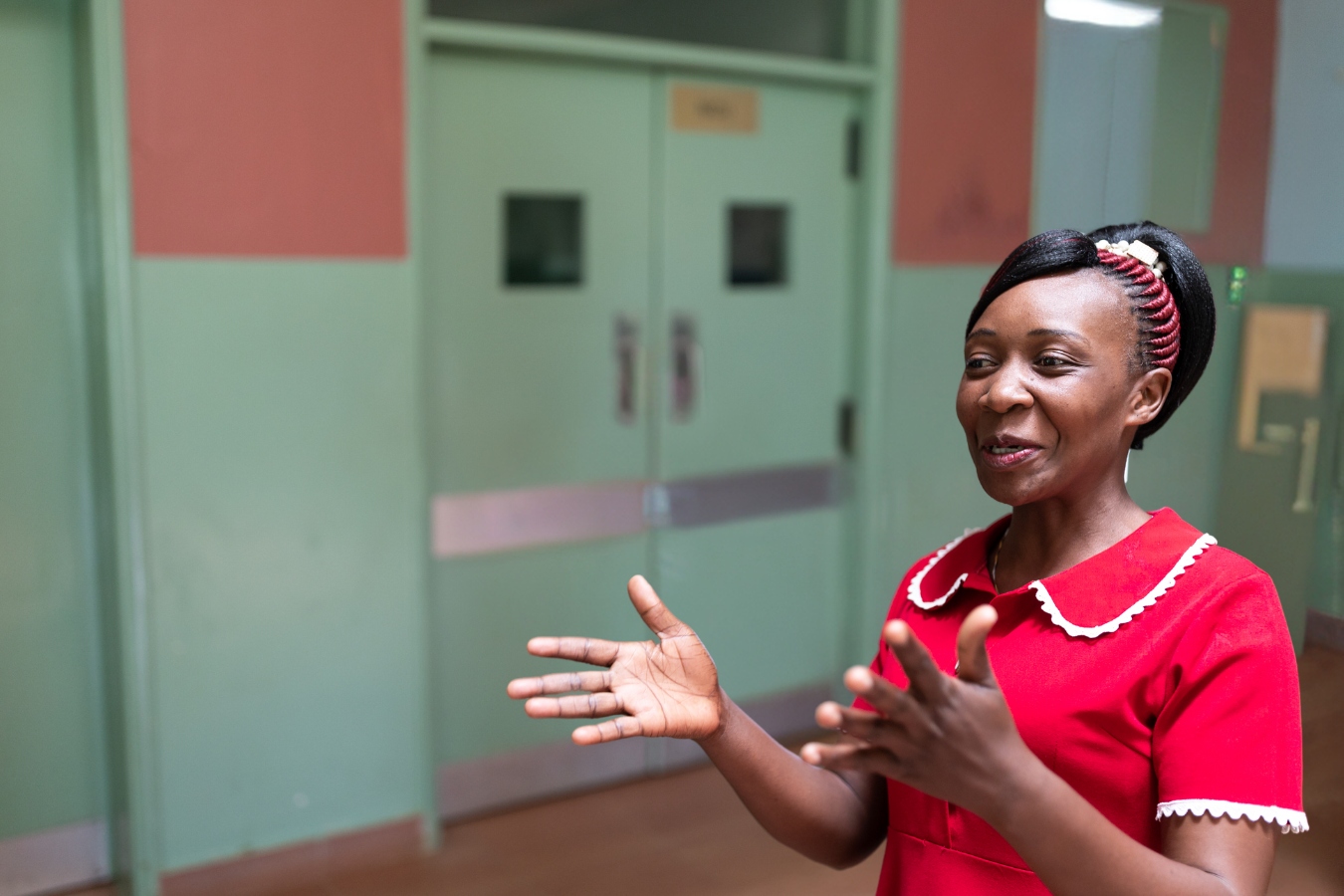
Health system strengthening
We partner with governments to improve sexual and reproductive healthcare.
Right now, MSI is meeting the reproductive health needs of millions of people who otherwise wouldn’t have access. But in the long-term, national health systems should be equipped to provide these services. We’re helping to strengthen health systems to improve national healthcare and reproductive choice for everyone.
We are not just a provider of contraception and abortion — we’re working with partners on the big solutions needed so that everyone, everywhere has access to reproductive choice. In collaboration with governments and other health system strengthening partners, we’re ensuring that high-quality, comprehensive reproductive health services are available for the long-term.
Watch our short video below to see how this partnership works in action in Uganda:
Changing systems to change lives
For many people, their closest, affordable provider of sexual and reproductive healthcare is a public sector facility (through their national healthcare system). But the services on offer can be limited, the clinics can be short on the right supplies, and the staff can lack the training needed to deliver a full range of reproductive health services. This creates deep divides, with unequal access and choices affecting women’s experiences of reproductive healthcare and leaving people without the care they need. It’s clear we need to strengthen health systems, together.
A driving force behind our work is our goal to leave no one behind. As experts in serving communities who are often overlooked, marginalised or hard-to-reach, MSI is partnering with governments to reach over 250 million people with no access to modern contraception and 35 million women who resort to an unsafe abortion every year. These people need to be able to rely on their public sector providers to access choice and safe services.
That’s why we’re partnering with governments to build sustainable access to sexual and reproductive health into the future, so women can be confident they have access for the long-term. By strengthening the entire health system, we can have a profound impact on people’s health and lives.
MSI partners with governments in 22 countries to expand access to reproductive healthcare for the women and girls often left behind.
MSI’s high-impact approach
Our work to strengthen health systems is increasing choice, quality, and reach of services. We’re working in close partnership with local communities, healthcare facilities and governments to:
- Shift community norms and break down stigma
- Build the skills of reproductive healthcare providers
- Put client-centred data and voices at the heart of decision-making
- Drive policies that support best-practice services
- Stock quality supplies and build strong supply chains
Of course, this isn’t a one-size fits all approach. Working in 36 different countries around the world means there’s a vast range of political and cultural contexts. That’s why our approaches are diverse, responsive, and co-designed with governments.
Our longstanding partnerships with governments and trusted relationships with community health workers put us in good stead to help deliver change.
They know we have a proven track record of delivering quality services to marginalised communities, and that everything we do is informed by clients. They also benefit from the perspectives of our 5,000 local service providers who understand first-hand the challenges of delivering sexual and reproductive healthcare to underserved communities.
We work with local communities and partners
A crucial part of this work is helping to shift the narrative within communities through engagement. This means working to increase knowledge and break down the stigma surrounding contraception and abortion. It also includes shaping more positive gender and social norms that enable women to have more control over their bodies and choices. We support community health workers and grassroots partners to lead conversations, increasing trust and awareness of life-changing reproductive healthcare services.
We collaborate with local government teams and providers
We work closely with local government health teams and health workers, providing training so they can deliver client-centred counselling and a range of services. We empower these teams to use their own data and insights to make evidence-based decisions. And we help them ensure their facilities are equipped with high-quality supplies and supply chains that can sustain them into the future.
We work hand in hand with national government
We actively partner with national governments as well as civil society groups to create an environment which supports sexual and reproductive health and rights. Together we shift policies, advocate for increased funding, and support long-term planning. Our expertise enables governments to accelerate access to essential services in a cost-effective and transformational way.
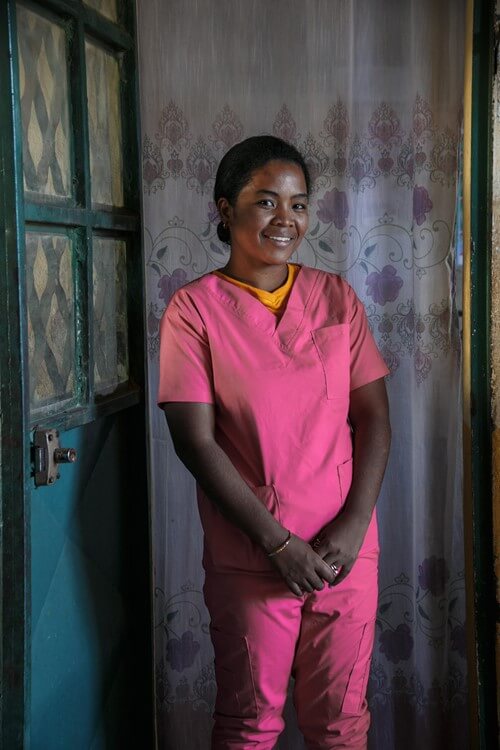
Achieving lasting change
We’re not in this forever. Once we’ve shared our expertise and helped build the capacity of public service providers, we’ll show ourselves the door—leaving governments empowered to provide quality reproductive healthcare into the future.
When we partner with a country, we have an exit plan:
- First, we directly support local health teams and communities to create change.
- Then we step back to enable the local teams to lead, providing indirect support where we’re needed.
- Finally, we withdraw our support so we can take our resources on to the next place.
This work is designed to be sustainable and lasting, meaning the impacts will be felt well into the future. New generations of women and girls will have high-quality sexual and reproductive healthcare at their fingertips.
And while the aim is to phase out our direct support when the appropriate time comes, MSI will still be present and working hard in other ways to build a better future. We’ll continue sharing our expertise, advocating for better policies, and doing everything we can to strengthen access to sexual and reproductive healthcare for all.
Health System Strengthening in Numbers
We know our clients, and everything we do is informed by their feedback. We collect over 300 million ‘data points’ every year on who our clients are and what care they’re seeking, and over 160,000 have talked to us about their experiences. With our strategic partnership approach, we’re already seeing significant impact.

8.2 Mil
accessed services last year across 6,410 MSI-supported government clinics
20-40%
increase in women and girls taking up contraception at the government facilities we supported in Uganda, Nigeria, Senegal and Ghana
50%
increase in adolescents accessing reproductive choice across MSI-supported government facilities in Senegal and Nigeria
A spotlight on MSI’s partnership with Uganda
We partner with the Ugandan government to offer women a full range of contraceptives to choose from, and it’s been a major success.
Before this partnership, women in Uganda had few choices when it came to contraception. 1 in 3 women looking to use contraception had no access. And the majority went to a public sector facility and received a short-term method—this was the only option for many due to training and supply issues.
To expand choice for women in Uganda, we’ve been working with the government and other partners, contributing MSI’s unique expertise to help strengthen the health system.
By engaging stakeholders across the spectrum, we’ve identified skills gaps and challenges and co-designed a new programme to increase reproductive choice. This includes training healthcare providers on long-acting contraceptive methods, upskilling district and health facility teams on stock and supply chain management to ensure the right supplies are available when they’re needed, and improving the quality of their health system data to support data-driven decision making.
Through this transformational partnership, we’ve supported 515 facilities across 95 districts in Uganda to deliver a full range of contraceptives, supporting over 400,000 clients in 2021. We’re proud to report that more clients than ever before (9 in 10) said they received counselling on a full range of methods and 85% opted for a long-acting method from the expanded choice available.
This partnership has increased access to quality healthcare and choice in a collaborative and sustainable way, and that’s what our health system strengthening work is all about.
A government provider in Bunyangabu shared:
“These trainings have helped us improve our services and the quality we offer our clients. We can now counsel on and provide any method confidently and clients are able to select any family planning method they want.”
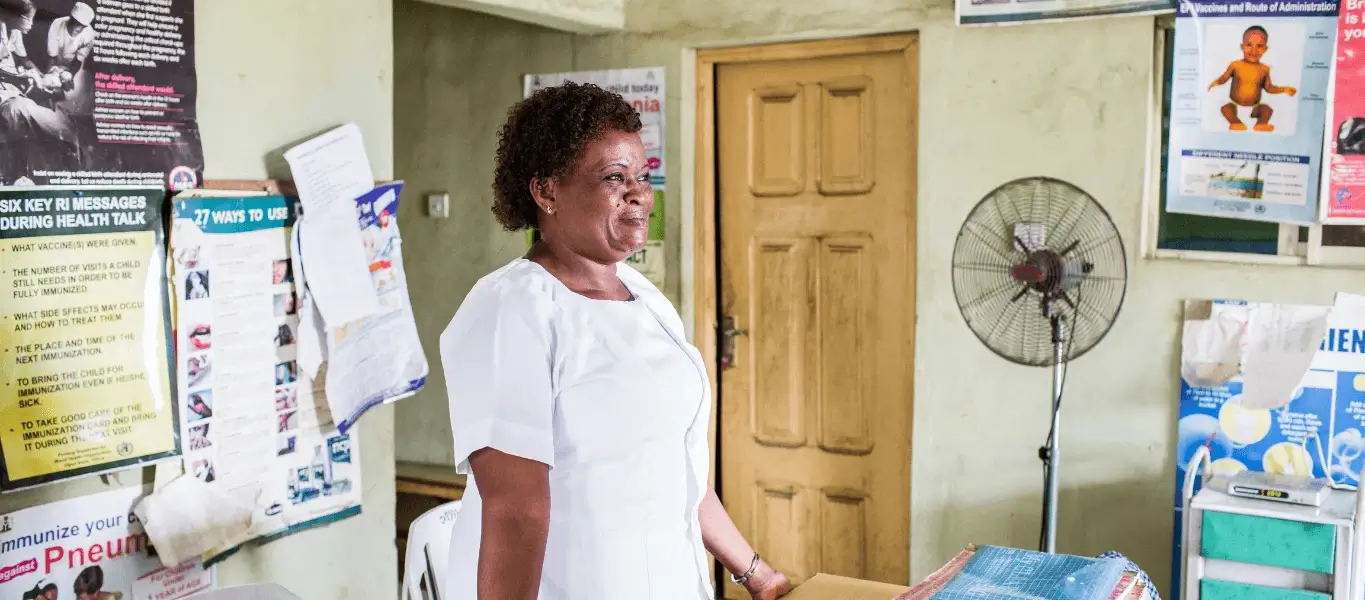
More investment means more impact
Strengthening health systems is the future of increasing access to reproductive healthcare. And partnerships are the crux of this work. With more investment, we can scale our work to give a generation of girls the best possible chance of fulfilling their potential.
We’ve crunched the numbers for Nigeria for example: we have a pathway of scaling government partnerships across Nigeria to meet the contraceptive needs of 9 million underserved women and girls at a cost of under £6 per client. Investing £60 million into this now would save £875 million in future healthcare costs, avoid 13 million unintended pregnancies, and save 60,000 lives. Further still, we’re making significant progress towards sustainable development goals like poverty reduction and gender equality. There’s good reason why reproductive healthcare is referred to as a “development best-buy.”
With time, partnership, and joint investment, we know that national ownership of comprehensive sexual and reproductive healthcare can be achieved. And it will transform millions of lives.
Strengthening health systems in future
MSI plans to use our proven approach to scale up this work to support thousands more public service facilities, transforming access for millions of women and girls. We cannot do this alone. Join us in expanding access to choice for the next generation.

All about our Uganda Partnership
Read about our health system strengthening partnership with the Ugandan government to expand contraceptive choice.
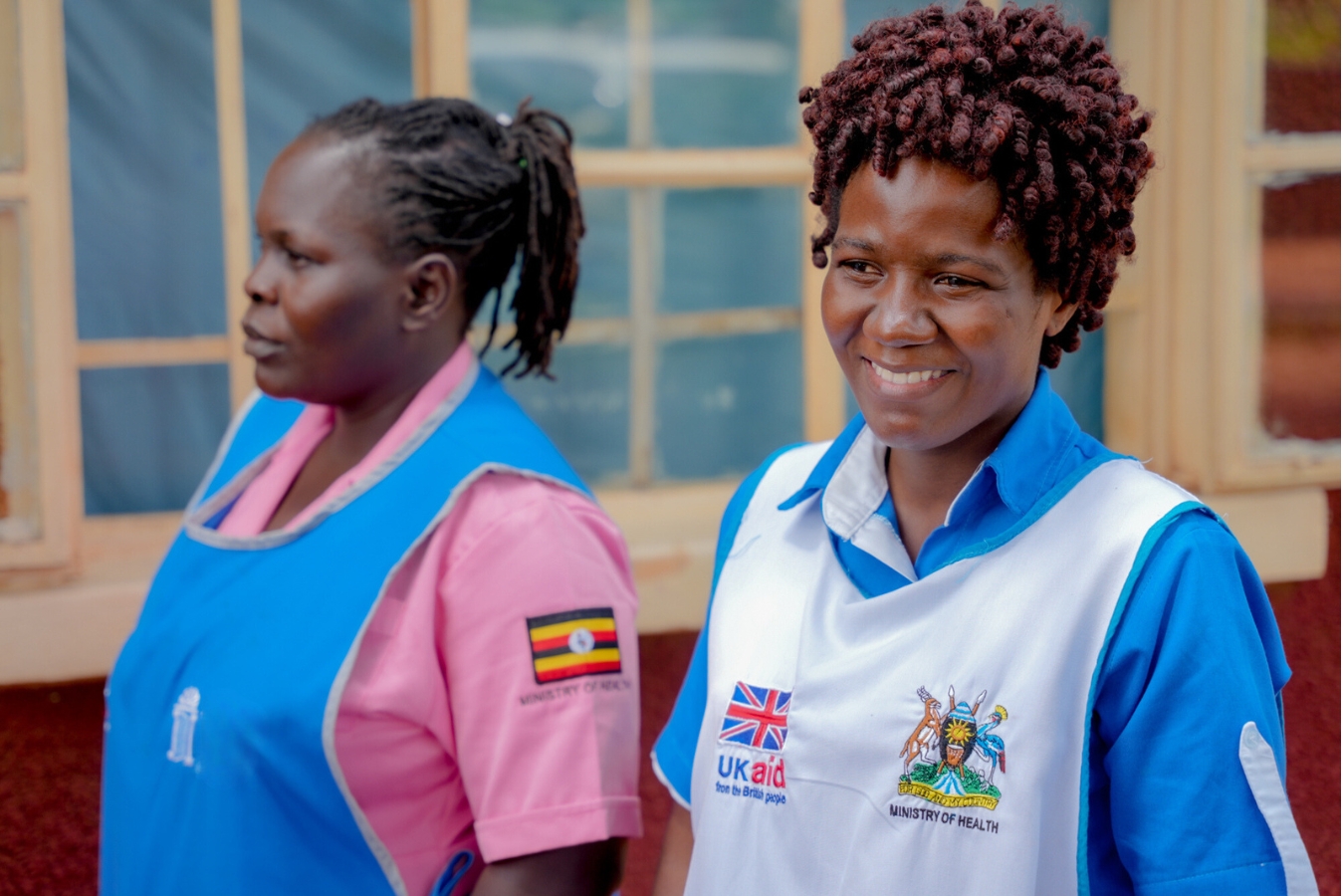
Strengthening systems
Want a bit more detail? Read about MSI’s approach, results and vision for sustained access in our three page briefing.

MSI’s 2030 Strategy
Read more about our health system strengthening goals in our bold 2030 global strategy.
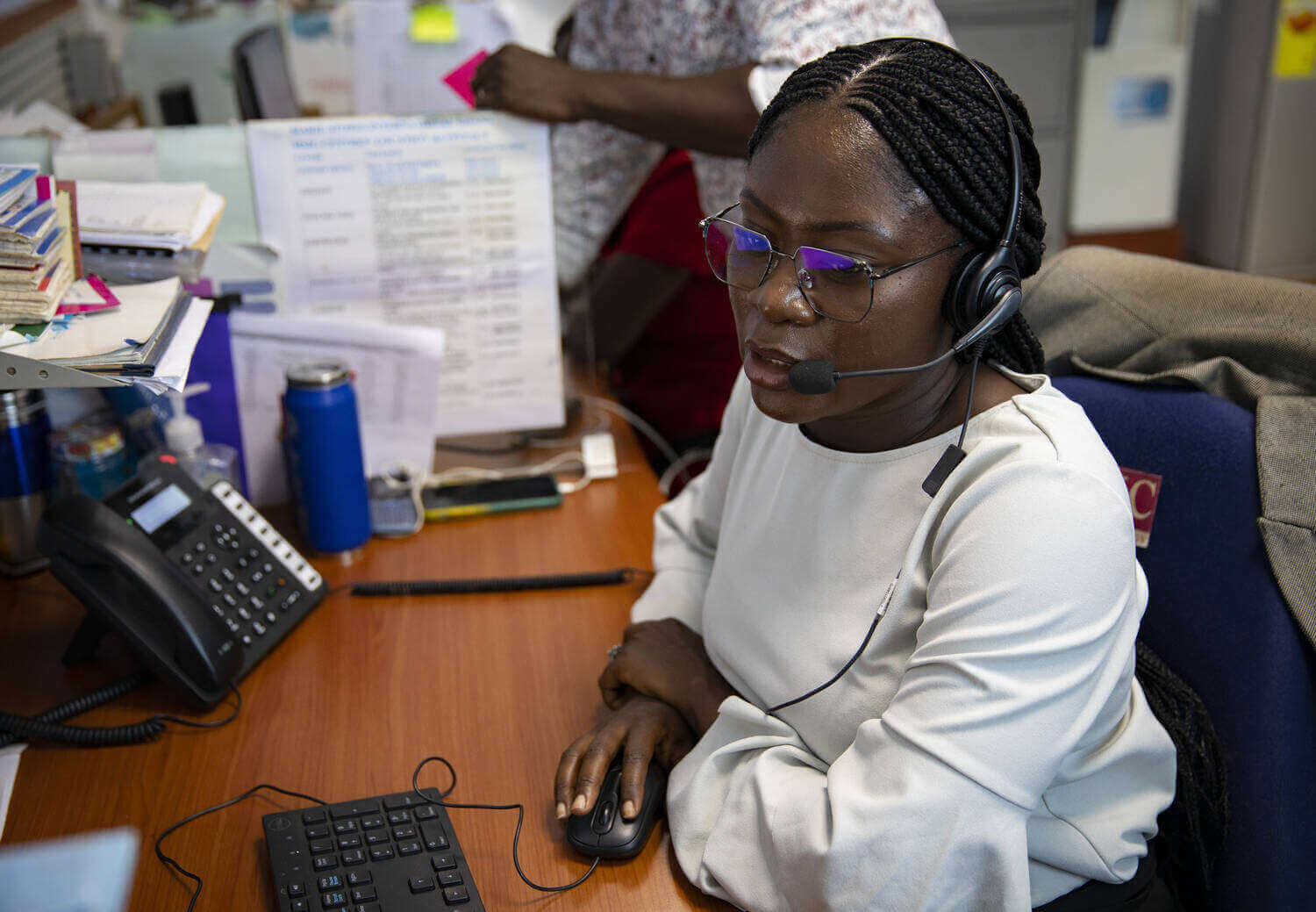
Contact us
Email our Partnerships Team to find out how you can help change lives by supporting increased access to reproductive healthcare.





